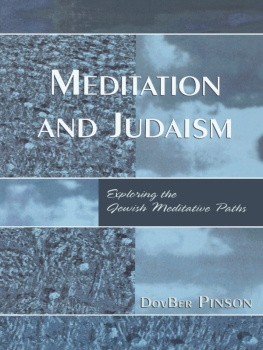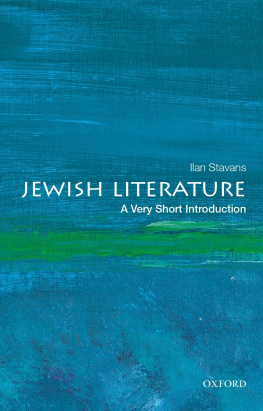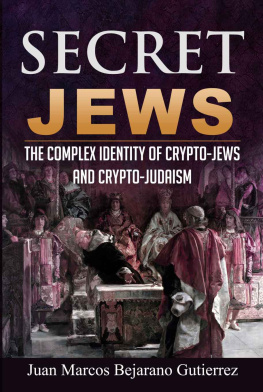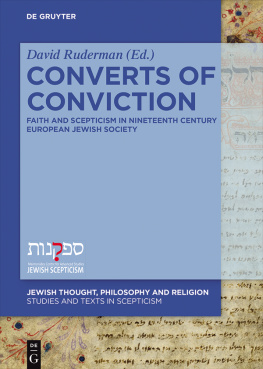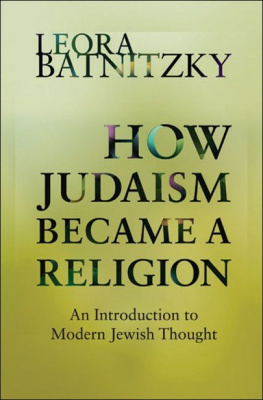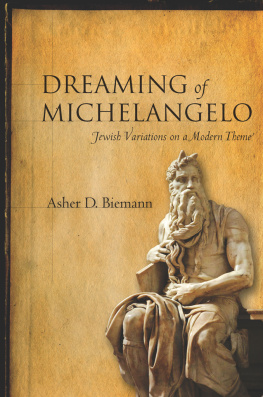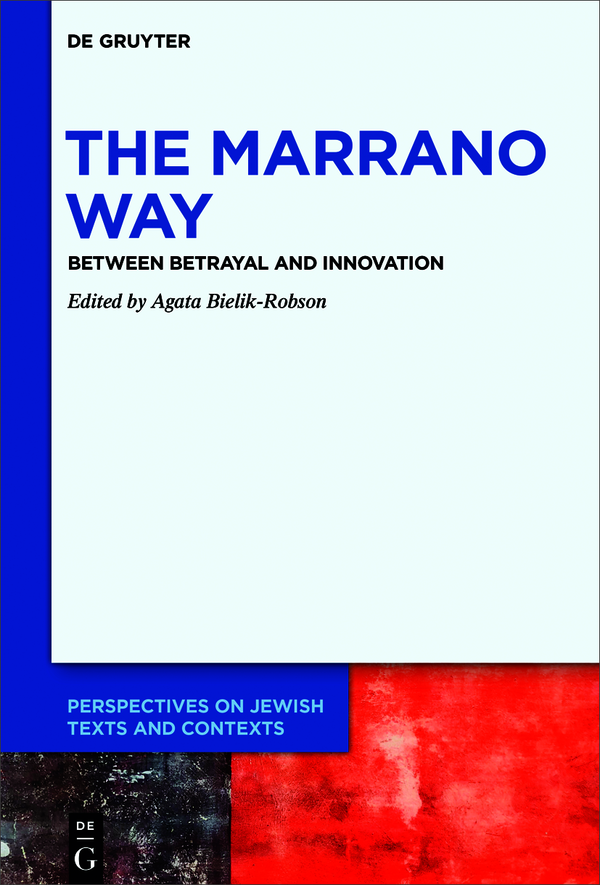Steven A. Aschheim
Richard I. Cohen
Mark H. Gelber
The Deutsche Nationalbibliothek lists this publication in the Deutsche Nationalbibliografie; detailed bibliographic data are available on the Internet at http://dnb.dnb.de.
Introduction
The Marrano Hypothesis: The Rise of the Modern Subject out of the Sources of (Hidden) Judaism
Agata Bielik-Robson
From Jerusalem a remnant shall go out, from Mount Zion a band of survivors.
Isaiah 37:32
Everything that I say can be interpreted as arising from the best Jewish tradition and at the same time as an absolute betrayal. I have to confess: this is exactly what I feel.
Jacques Derrida.
Hermann Cohens famous stipulation that Judaism is the original religion of reason and because of that must be treated as the source of modern Enlightenment lies, somewhat modified, at the heart of this volume. All its essays put to the test the Marrano hypothesis: the idea that modern subjectivity thoroughly individuated, reflexive about its primary belonging, and keen on freedom of choice and thought derives from the sources of marranismo as the hidden Jewish tradition which broke the allegiance to the rabbinic Judaism, but nonetheless preserved some elements of Jewish faith undercover, while wandering into other cultures. Let us, therefore, imagine that it is not Descartess ego cogito, but rather Michel de Montaignes living self that forms the paradigm of modern subjectivity: not an abstract thinking thing, naturally born for philosophical reflection, but a complex psychic entity, torn by existential aporias which cannot be detached from the concrete course of life. Let us imagine further that these existential aporias have reasons and roots that can be located in time and space and attributed to a quite specific experience. We have read a lot about Montaigne as an alternative founder of nova era: a kind of a modern Augustine, but in reverse, investing not in the intimate relation with God, but in the detailed and intensely secular description of his life in the world. Together with Spinoza, Montaigne is often hailed as a pioneer of the modern free thinking which, not necessarily atheistic itself, rejects all the religious dogmas and often creates heterodox metaphysico-theological systems. Spinoza forged a powerful new system of metaphysics, which influenced the whole modern philosophy. Montaigne did not, he preferred to stay close to the meandering arabesque of his life. But they have one thing in common: the Marrano experience.
Montaigne, the Paradigmatic Marrano
Michel Eyquem de Montaigne was born in 1533 as the son of Pierre Eyquem and Antoinette de Louppes de Villaneuve, a descendant of the New Christians from Spain, who migrated to France. The Eyquems were merchants and most likely also of a Sephardic ancestry, who arrived to the region of Bordeaux in the time of the persecution of the Iberian Jews already as the Nuevos Cristianos. Michel dropped the enigmatic alien-sounding patronym (some claim that it might derive from the Hebrew Hayim) early on and kept only the name of his birthplace, but this gesture should not be read as a sign of rejection of his Jewish roots. In The Essays, there are many allusions to the sorry fate of the Iberian conversos, but one fragment particularly is worth citing since it contains the whole of the Marrano experience in the nutshell. First, as it is often the case with Montaigne deeply in love with the Greco-Roman antiquity, he strikes a comparison a kind of a Benjaminian flash of recognizability between the Iberian persecution of the Jews and the Persian persecution of the ancient Greeks:
Any opinion is powerful enough for somebody to espouse it at the cost of his life. The first article in that fair oath that Greece swore and kept in the war against the Medes was that every man would rather exchange life for death than Persian laws for Greek ones. In the wars of the Turks and the Greeks how many men can be seen preferring to accept the cruellest of deaths rather than to renounce circumcision for baptism?
Although respectful of the Greek imperative of the honorable death, Montaigne does not endorse it. In the rapid shift of historical contexts, he plunges straigth into the heart of the Marrano dilemma: should one renounce circumcision for baptism and thus stay alive or should one accept the cruellest of deaths and thus stay faithful to their religion? In the next few paragraphs, he launches a bitter attack on the two 16th century Iberian kings, Castillan and Portugal, who contrived a plot that would obstruct the migration of Jews from the peninsula and face them with a terrible choice which they had to decide in a very short time and under the extreme duresse: either conversion to Christianity or slavery
This deed is said to have produced a dreadful spectacle, as the natural love of parents and children together with their zeal for their ancient faith rebelled against this harsh decree: it was common to see fathers and mothers killing themselves or an even harsher example throwing their babes down wells out of love and compassion in order to evade that law. Meanwhile the allotted time ran out: they had no resources, so returned to slavery. Some became Christians: even today a century later few Portuguese trust in their sincerity or in that of their descendants.
(CE, 61)
Indignant with the treachery of the Portuguese King, who first promised the fleeing Spanish Jews a safe passage to Africa and then withdrew his offer, Montaigne comments: That is an example which all religions are capable of (CE, 59; emphasis added). Why all? Is Judaism also to be accused of a similar cruelty, by inducing its believers to choose martyrological death, as is Christianity, by producing the dubious Nuevos Cristianos with the absolute force of compulsory conversion? towards this preference is that it may indeed be a preference: a deep desire to prove ones fidelity to God by the renunciation of life in the self-sacrificial ascetic gesture. He thus concludes the entry on the conversos with a cryptic reference to a friend who, in the Zealot mode, pursued death with a real passion:
I witnessed one of my friends energetically pursuing death with a real passion, rooted in his mind by many-faceted arguments which I could not make him renounce; quite irrationally, with a fierce, burning hunger, he seized upon the first death which presented itself with a radiant nimbus of honour.
(CE, 61)
Free of any thanatic fascination or a martyrological desire, Montaigne firmly believes that it is better to live than to die: better to lose glory and survive than to gain glory and perish. He does not pour any scorn on those Jews who became Christians in order to secure their survival. If anything, he merely questions whether they became Christians after all, since it is hard to expect a sincere allegiance to the new religion, if one had been brought to it by the absolute force. He thus sees those surviving


